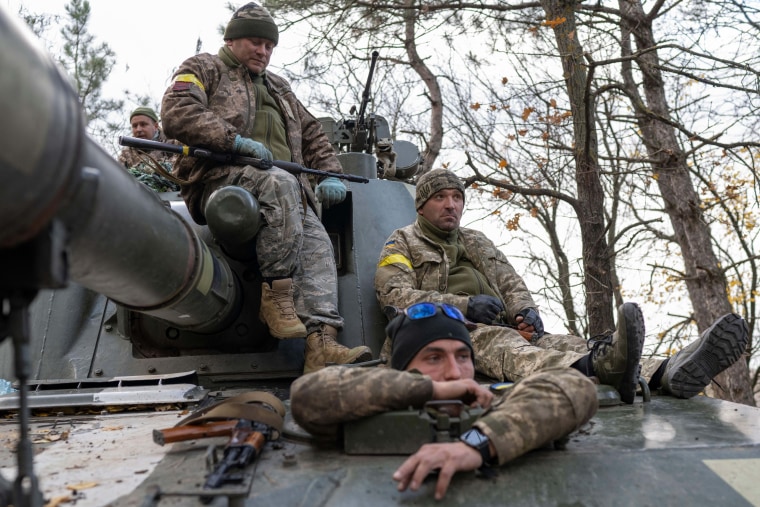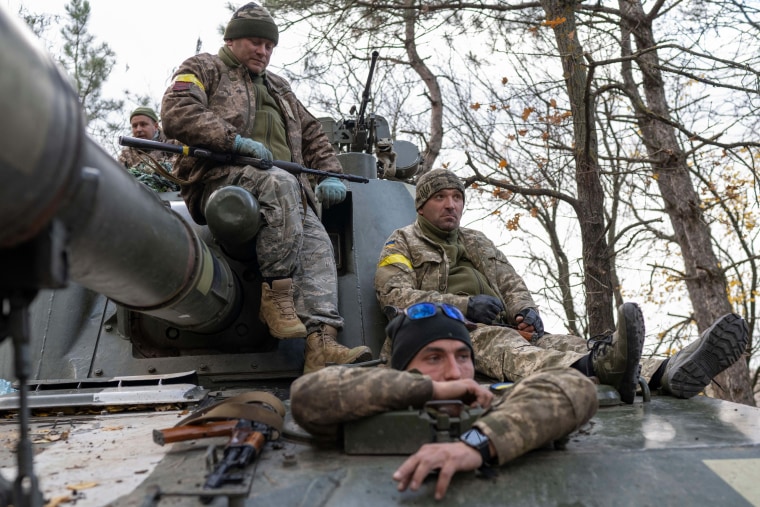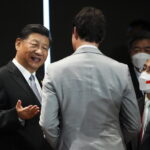Ukraine’s supporters have also accused Russia of trying to drive up energy and other costs for European nations that rely on Russian supplies, in hopes of spurring public fatigue over the war and diminishing political support for sanctions on Russia and continued military assistance to Ukraine.
Although U.S. officials took pains to downplay any disagreement, there were clear signs that Ukraine was bristling at its allies’ public stance.
Zelenskyy, pleading for fairness, insisted Ukraine must have access to the crash site and be part of any investigation, urging allies to “please refrain from making final conclusions until it’s over.”
The tension comes as Kyiv has also pushed back against suggestions from Washington that now might be a good time to consider sitting down to negotiate with Russian President Vladimir Putin.
Moscow has sought to exploit the divisions between Ukraine and its supporters. In the fog of war, many Western officials initially had speculated Tuesday that the missile may have been launched by Russia, an assumption Kremlin spokesman Dmitry Peskov decried as “another hysterical, rabid Russophobic reaction, which was not based on any real data.”
As U.S., Polish other intelligence and military officials began investigating, the Biden administration said little publicly, deferring initially to Polish President Andrzej Duda. He ultimately said what had struck his country was likely a “Russian-made” S-300, a Soviet-era surface-to-air missile that both Russia and Ukraine possess.
By Wednesday morning, when Biden issued his first public comments after meeting urgently on the matter with G7 and NATO leaders, he said it was “unlikely, in the minds of the trajectory, that it was fired from Russia,” prompting rare praise from the Kremlin.
“It is worth paying attention to the restrained and much more professional reaction of the American side and the American president,” Peskov said.

And despite Poland’s acknowledgement Wednesday that the missile was likely Ukrainian, Russia summoned the Polish ambassador to Moscow to the Foreign Ministry to be dressed down, presumably because Poland hadn’t pointed the finger at Ukraine sooner.
“You were one step away from catastrophe only because [the Ukrainians] sucked you into it, with such a disgusting method,” Russian Foreign Ministry spokeswoman Maria Zakharova said.
As the U.S. and its allies worked to paper over any disunity that could play into Moscow’s hands, Secretary of State Antony Blinken spoke with Ukraine’s top diplomat on Wednesday to “convey information” about what the U.S. has learned about the strike, the State Department said.
By Wednesday evening, Ukraine’s government appeared to be softening its claim that Russia launched the missile that hit Poland.
Zelenskyy, in his evening address, avoided repeating that assertion, though he did call again for Ukrainian investigators to be granted access to the crash site. He said he’d spoken with Duda to “express my condolences” for the Polish citizens killed.
Andrew S. Weiss, a former White House and State Department official now at the Carnegie Endowment for International Peace, said Russia’s previous efforts to drive a wedge between Ukraine and its Western partners have failed, and predicted they will fail again.
“Wars are highly dynamic, volatile and unpredictable and bad things do happen in wars by their nature. Everybody gets that,” said Weiss, whose book “Accidental Czar: the Life and Lies of Vladimir Putin” was published this month. “It doesn’t seem likely to me this would become a meaningful source of discord.”




